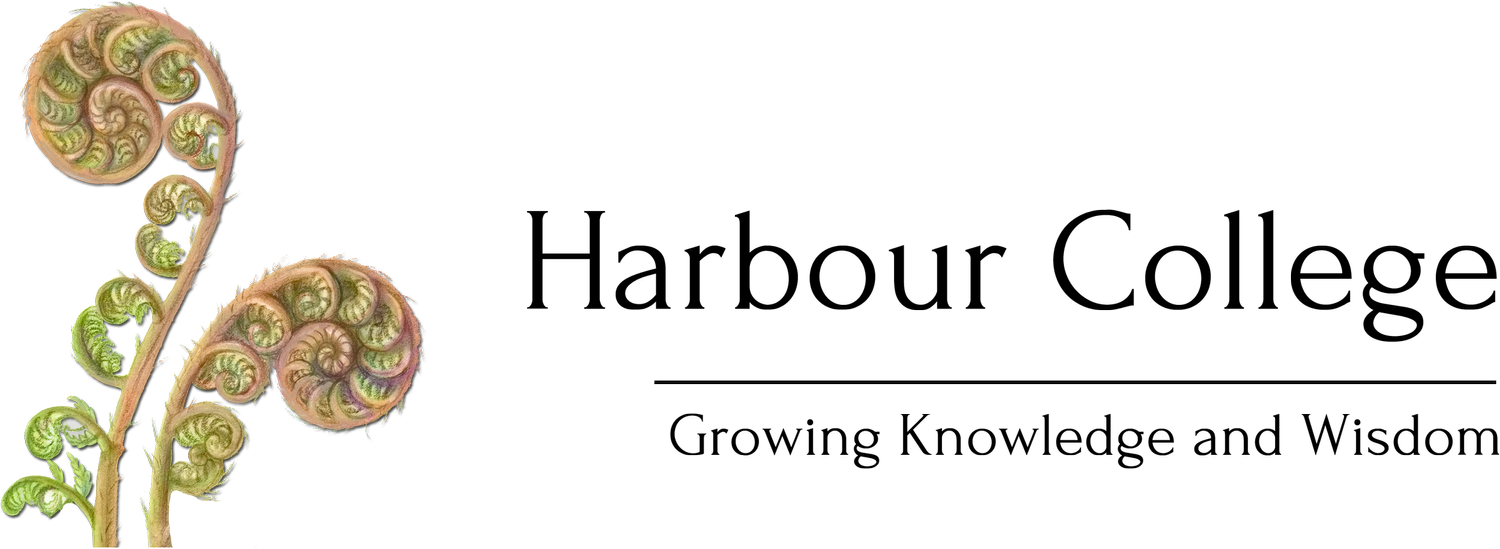Academic Development
Harbour College is focused on Junior-College education - Yr 7-10 with individual goals for each student to move beyond so they are ready for the next phase of life, whether that may be continuing with school or work.
-
Academic delivery at Harbour College is divided into three levels
Junior programme (Year 7-8)
Middle programme (Year 9)
Y10 programme
The “Years” can be flexible; we are able to accommodate for particular needs a student might bring to the school, whether that is academic or social.
Academic Programme at Harbour College is under the following framework consisting of five components.
Cross-Curricular Modules
Essential Subjects
Individual Education Plan
Health & Physical Education
Commerce & Entrepreneurship
Year 10 students have a slightly different programme as we prepare them for NCEA 1 in Literacy and Numeracy, and the learning levels need to understandably pitched higher
Cross-Curricular Modules
Cross-Curricular Modules is one of core elements of education at Harbour College. Each module, under a topic that is relevant to current society, contains a number of sub-topics. The sub-topics will naturally lead to lessons and tasks related to different subjects, that fulfils the indicators of NZ curriculum.
Cross-Curricular Modules focuses on three pillars of modern learning
Critical Thinking
Independent Learning & Research capabilities
Communication Proficiency
Students are then guided to discover the relationship between above three pillars and the knowledge relevant to the module, so they learn to see how knowledge/information is applied in world-learning and not word-learning.
Much of sciences and social studies are covered by these modules.
2. Essential Subjects
There are subjects that simply require separate lessons to ensure learning depth and fulfilment, also in order to prepare for NCEA. English and Maths are the obvious examples.
Harbour College focuses on the following core subjects during the Essential Subjects periods of the timetable, with English and Maths being the particular focuses.
English
Mathematics
Social Sciences & History
Science
Health
Art
Music
We also have weekly classes where the students break into various activity groups, doing cooking, rock band, crafts, performing arts and other activities depending on interests and availability.
We have a specialist Art teacher coming in every Thursday afternoon, and endeavour to add specialist teachers as the roll grows bigger.
3. Individual Education Plan
This is a systemic adaptation of IEP recommended by Ministry of Education (link).
The ultimate purpose of IEP is to serve the individual needs of each student. For example, one might need to focus on outdoor activities so she might go out paddleboarding in a couple of afternoons per week, another might need to spend some time to improve her spelling. while another may want to focus on fulfilling her music ambitions.
While we want the students to lead the learning whenever possible, this generally does require close inputs from both the teachers and parents in order to be successful.
It involves the following components:
Interview with the parents to hear their perspective and children’s history.
Interview with the student to hear their thoughts on school life and preference/priorities
Construction of the Plan, with specific action and measures identified.
Implementation of the plan (usually in small groups), and measures.
4. Health and Physical Education
Both psychological and physical health are nurtured at Harbour Montessori College.
Psychological health is cultivated by the school’s everyday inquiry into individual needs of students, alignment in experiential learning to foster the needs, and preparation of the environment to maximise organic manifestation of learning events.
Physiological health is developed by our pre-planned weekly Physical Education classes. These are not so much about building athleticism but to foster friendship, improve mental health, and learn to build more workable personal relationship with physical health. In short, it’s really about having a laugh with your friends.
5. Commerce & Entrepreneurship
“Commerce & Entrepreneurship” programme (rooted in Montessori education on which the school was founded) is a combination of business studies and economics that looks to provide students with theoretical real-life learning projects that relate to the following sectors and more:
Business planning and reviews
Website management
Stock management
Marketing
Product design
Product manufacturing pipeline
Finance analysis & management
Customer management
Communications
Reports and Reviews
The process will be strongly guided by the teachers, and will give students a safe environment to have a go at calculated risk-taking, and learn from mistakes.
While this is primarily for older students (Yr 10), there will be opportunities for younger students to participate.






